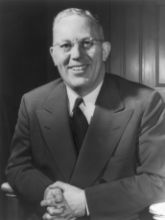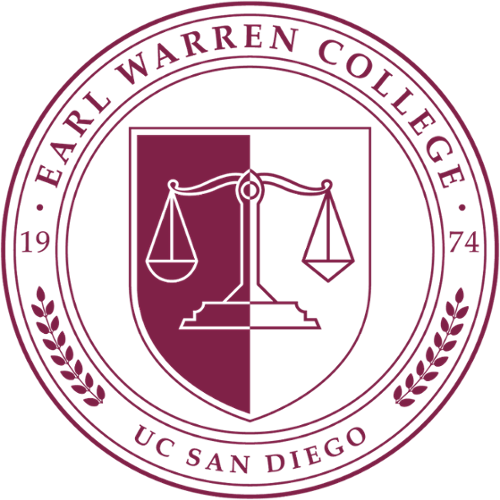Earl Warren (1891-1974)
Earl Warren was born in Los Angeles on March 19, 1891. Throughout most of his childhood, he and his family lived in Bakersfield, where his father was a railroad employee. His determination to be a lawyer dates to before his high school days, when he listened to criminal cases at the Kern County courthouse.
Warren attended the University of California, Berkeley, where he majored in political science for three years before entering UCB's School of Law. He received his B.A. degree in 1912 and his J.D. degree in 1914. On May 14, 1915, he was admitted to the California bar.
After graduation, Warren worked in law offices in San Francisco and Oakland, the only time in his career when he was engaged in private practice. From 1920 until his retirement from the Supreme Court in 1969, he served without interruption in public office. In 1925, he was appointed Alameda County district attorney when the incumbent resigned. He won election to the post in his own right in 1926, 1930, and 1934.
During his fourteen years as district attorney, Warren developed a reputation as a crime fighter. As a prosecutor Warren was sometimes accused of high-handedness in his methods, but in thirteen years and in thousands of cases ranging from murder to window-breaking, he never had a conviction reversed by a higher court. Warren was a member of the Board of Regents of the University of California. Warren had broad bipartisan support. He is the only person to have been elected to the governorship of California for three successive terms (in 1942, 1946, and 1950). In 1946, he was the only governor in our history to win an election unopposed, when he won the Democratic, Republican, and Progressive primaries.
In 1948, Warren was the Republican Party's nominee for vice-president of the United States on a ticket headed by the popular Thomas E. Dewey. (That famous election was the only one Warren ever lost.) Interestingly, one of Warren's unsuccessful initiatives as governor was for universal health care.
In 1953, President Dwight D. Eisenhower appointed Earl Warren the fourteenth Chief Justice of the United States. Among the Warren Court's most important decisions was the ruling that made racial segregation in public schools unconstitutional. Another was the "one-man one-vote" ruling that caused a major shift in legislative power from rural areas to cities.
Besides his work on the court, Warren headed the commission that investigated the assassination of President John F. Kennedy.
Earl Warren retired in 1969, and died on July 9, 1974, in Washington, D.C.
Earl Warren College, the fourth of UC San Diego's undergraduate colleges, was founded in 1974, and named after the former Chief Justice in a ceremony attended by Thurgood Marshall, a member of the Warren Court and a jurist destined eventually to bequeath his name to another UCSD college. Warren College commemorates the groundbreaking achievements of the popular California governor and Chief Justice of the U.S. Supreme Court.


